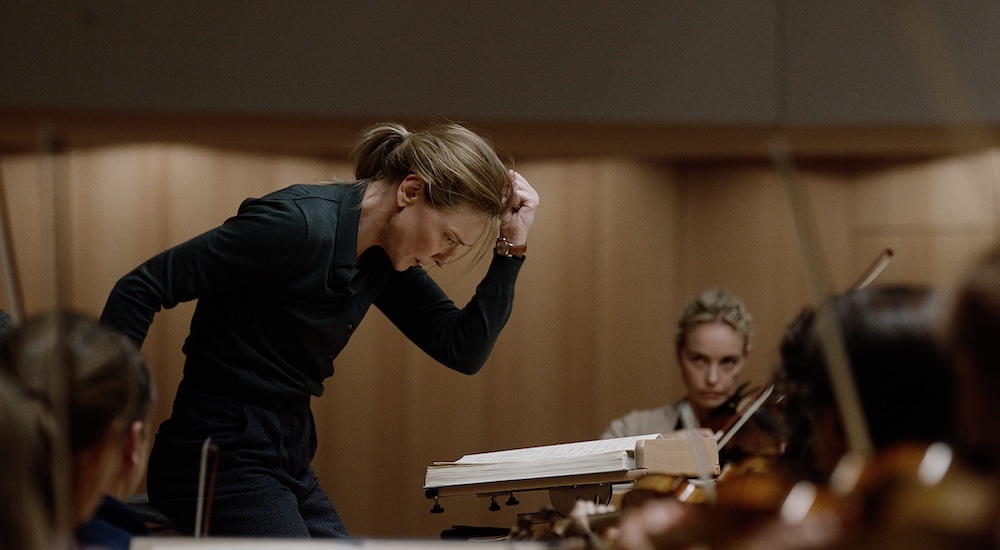At this point it’s an Internet trope to say Cate Blanchett can do anything. Fortunately for the Internet, Blanchett’s performance in Tár proves, once again, that she truly doesn’t miss.
Tár is written and directed by Todd Field, his first return to directing since 2006’s Little Children. It stars Blanchett as Lydia Tár, an accomplished conductor/composer/writer and the first female music director of a major German orchestra. Centered in the world of Western classical music, Tár never sways from its focus on Lydia, slowly unraveling the darkness lurking beneath her accomplishments over its two hours and thirty-eight minutes runtime.
At its core, Tár is a film about the dangers of power and ego. The film begins with Lydia being interviewed on stage, her impressive resume recited to the audience. She’s not only a composer that established her own conductor scholarship, she’s a best selling author and an EGOT winner. Our first impressions of her are equally exalted, as she comes across as confident in her abilities yet humble about her work. As we follow Lydia through more of her life, through fancy meals, private jets, and impeccably designed buildings, you start to see small stains on all of this polished glamor. She feigns ignorance after her wife’s pills go missing, she berates a college student for his opinions in a guest lecture, a book arrives from an anonymous sender that she destroys in a panic. While we join her at the height of her success, we start to see the road behind had plenty of bumps.
Blanchett is so mesmerizing, so mysterious, that it’s easy to be absorbed in watching Lydia’s life. Her coolness permeates Lydia’s relationships with her wife, daughter, assistant, colleagues, patrons, everyone. The supporting cast all excel as satellites in her orbit, tensed to break away. The only distraction would be Mark Strong’s terrible wig.
Importantly, the film never judges Lydia’s questionable “means to an end” methods. It lets us decide for ourselves. When Lydia gets caught in a MeToo-type scandal, the details are light and no flashbacks are provided, depriving us of the absolute truth. Instead, Todd Field lets us watch a woman’s fall from grace and pass judgment ourselves. In some ways, Tár is an alternate universe. Lydia is an accomplished female, lesbian conductor in the male-dominated world of classical music. When this is brought up at the beginning of the film, she brushes it off and says that things are more even than ever. That’s certainly not true in our reality, but it helps focus the film on its real message - that power and ego can corrupt anyone. Humanity loves a genius, but if that genius buys into their own BS, then things can get dangerous. Same goes for power, utilizing it to get what you want in small ways and getting away with it can lead to bigger and bigger abuses.
Tár chronicles one woman’s demise as she must watch the wealthy, immaculate world she’s built for herself crumble under the weight of her own misdeeds. Director Todd Field doesn’t need you to think she got her just desserts, but instead leaves out just enough context to leave it in a grey area, like most situations in the real world. Most of all, it’s an outlet for another incredible Cate Blanchett performance. Bring on the Oscar campaign!

